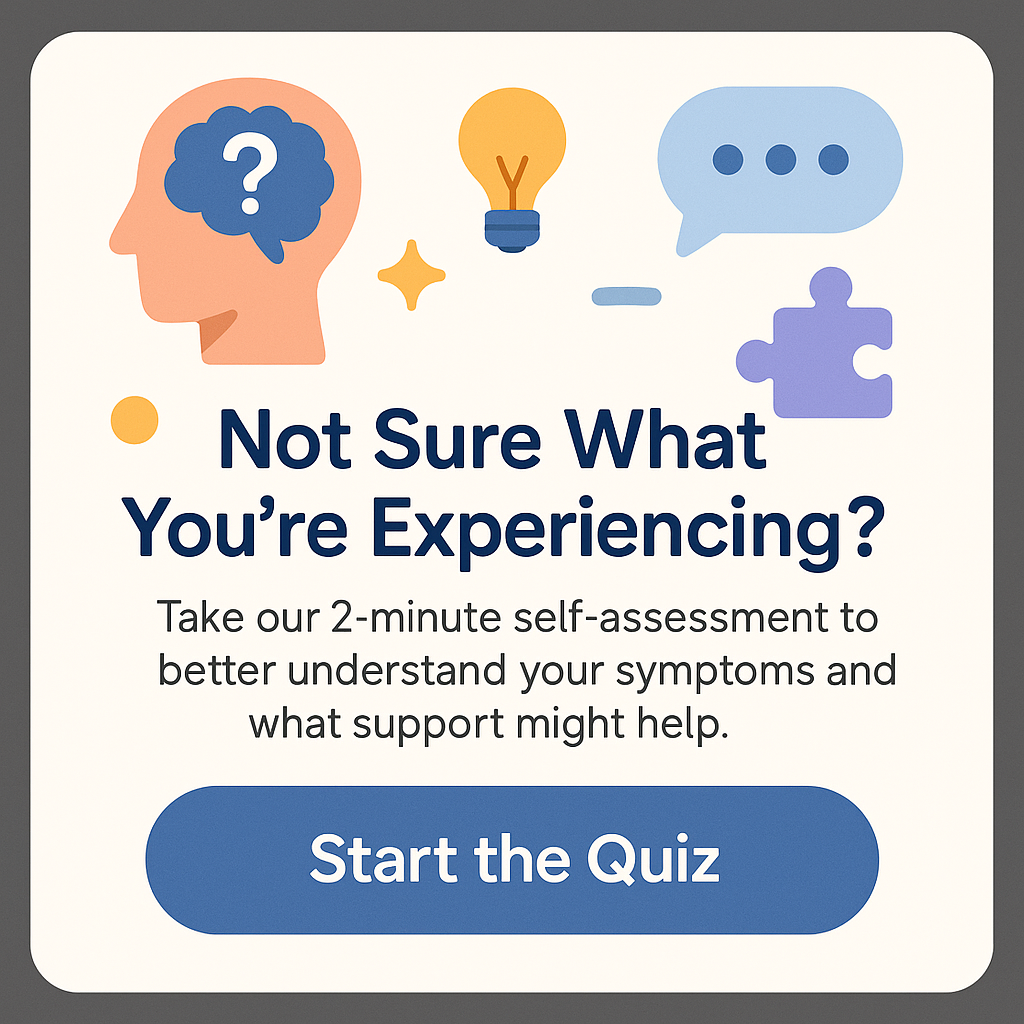What are the 12 Signs of Autism in Adults?
Have you ever wondered, What are the 12 signs of autism in adults? Understanding autism in adults is crucial not only for those living with it but also for their families, friends, and society at large. Autism Spectrum Disorder (ASD) often presents differently in adults than in children, making diagnosis and awareness particularly challenging. Many adults go through life without ever being diagnosed, leading to misunderstandings in social situations, workplace interactions, and relationships. Given the rising awareness surrounding autism, it’s essential to familiarize ourselves with the signs that could indicate an adult is on the spectrum. In this comprehensive guide, we’ll explore the twelve key signs you might observe and what they signify.
Understanding Autism Spectrum Disorder (ASD)
Before addressing What are the 12 signs of autism in adults?, let’s dive into what Autism Spectrum Disorder (ASD) encompasses. ASD is a complex neurodevelopmental disorder that affects communication, behavior, and social interaction. It is called a “spectrum” because it varies widely in severity and manifestation. The signs of autism can present differently based on factors like age, gender, and individual circumstances, which contributes to the misconceptions surrounding it.
For many adults, autism can manifest in subtle ways. Unlike children who might exhibit pronounced traits, adults may develop coping mechanisms or strategies that mask some signs of autism, making it harder to identify. Here, we aim to provide clarity on the twelve signs you should pay attention to.
The 12 Signs of Autism in Adults
1. Social Interaction Challenges
Social interaction is one of the primary areas where adults with autism may struggle. People on the spectrum might find it difficult to initiate or maintain conversations or understand social cues, which can lead to feelings of isolation. They may prefer solitude over social gatherings, causing friends and family to misunderstand them. If social situations often feel overwhelming or exhausting, it’s worth exploring this as a sign of autism.
2. Difficulty with Nonverbal Communication
Another common sign involves challenges with nonverbal communication. Adults with autism may struggle to interpret body language, eye contact, and facial expressions. You may notice inconsistent eye contact—sometimes too much, sometimes too little—or a flat tone of voice. These subtleties can lead to confusion in social interactions, as others may misjudge their emotions or intentions.
3. Repetitive Behaviors
Repetitive behaviors or routines can be a hallmark of autism. This might manifest in the need to follow specific schedules, routines, or repeated phrases. Some adults might also find comfort in specific repetitive tasks or interests, which can lead to intense focus on particular subjects. While this focus can result in expertise in certain areas, it may also hinder them when adapting to new situations.
4. Sensory Sensitivities
Many adults on the spectrum experience heightened or diminished sensitivity to sensory input. This can include sounds, lights, textures, or even taste. For instance, the hum of fluorescent lights might be unbearable for some, while others might not register a loud noise in their environment. Understanding and dealing with these sensory issues can be exhausting, leading to significant stress and social withdrawal.
5. Difficulty with Change
Changes in routine, environment, or expectations can pose considerable stress for adults with autism. They might struggle to adapt to new work environments, relationships, or even changes in daily routines. This can lead to anxiety and resistance, making it essential for loved ones to provide consistent support and understanding when navigating these transitions.
6. Intense Focus on Specific Interests
Individuals with autism often develop deep passions or specialized interests. These interests can range from highly technical subjects to hobbies that may seem offbeat or niche. While this intense focus can be enriching and lead to profound knowledge, it can also alienate them from others who do not share similar passions. If you know someone who engages deeply with specific topics, it may be a sign of autism.
7. Challenges in Expressing Emotions
Emotional expression may also be difficult for adults with autism. They might struggle to convey their feelings effectively, leading to misunderstandings with others. This can be particularly challenging in romantic relationships, where emotional connection plays a crucial role. They may experience intense emotions internally while finding it hard to express those feelings outwardly.
8. Anxiety and Depression
Many adults with autism experience high levels of anxiety and depression. The challenges associated with social interactions, sensory sensitivities, and rigidity can contribute to feelings of frustration and isolation. Anxiety often manifests as a pervasive sense of worry or dread about social situations, making it vital for individuals to seek professional support and understanding from their circle.
9. Trouble with Decision-Making
For adults on the autism spectrum, decision-making can be a daunting task. This can stem from an overwhelming amount of information to process or fear of making the “wrong” choice. They might take longer to decide on simple things, whether it be about what to wear or where to go for dinner. Support and patience from friends and family can be incredibly beneficial during these times.
10. Difficulty in Understanding Humor
Humor is nuanced and can often involve sarcasm or double meanings, which may be challenging for adults with autism to navigate. They might take jokes literally or miss subtle cues that signal humor in conversation. This can lead to awkward situations or feelings of exclusion in social settings where humor is prevalent.
11. Strong Need for Routine
Adults with autism often find comfort in established routines. A predictable schedule can help reduce anxiety and provide a sense of stability. If routines are disrupted, it might lead to significant distress, highlighting the importance of consistent environments that foster comfort. Understanding this aspect can be pivotal for families and employers.
12. Feeling Different from Others
Ultimately, many individuals with autism report feeling different from their peers. This sense of alienation can stem from their distinct ways of thinking, social challenges, and emotional responses. Raising awareness and fostering acceptance can make a world of difference for those living with autism.
Seeking Support and Resources
So, if you’re wondering What are the 12 signs of autism in adults?, it’s essential to understand these traits can vary significantly from one individual to another. Just because someone resonates with a few signs does not mean they are autistic, just as not all individuals on the spectrum will show every sign. If you or someone you know is exhibiting several of the signs outlined above, seeking professional assessment from a healthcare provider or mental health professional can be beneficial.
There are numerous resources available for support, advice, and community engagement for adults with autism. Organizations dedicated to autism advocacy often provide resources that guide families and individuals in navigating the challenges associated with autism spectrum disorder. From connecting with others who share similar experiences to finding helpful literature and workshops, exploring these resources can significantly enhance understanding and acceptance.
Conclusion
Understanding What are the 12 signs of autism in adults? isn’t just about recognizing symptoms; it’s about fostering a supportive and inclusive society. Adults on the spectrum face unique challenges, and recognizing the signs is the first step toward empathy and understanding. Awareness can lead to better support systems, paving the way for improved interactions in personal and professional realms. If you or someone close to you resonates with these signs, remember that support is available, and seeking help is a brave and crucial step toward a fulfilling life.
FAQs
1. What age is autism typically diagnosed in adults?
While autism is often diagnosed in childhood, many adults realize they are on the spectrum later in life. Diagnosis can happen at any age, typically when someone seeks help for their challenges.
2. Can adults with autism lead normal lives?
Yes, many adults with autism can lead fulfilling, productive lives with the right support, understanding, and coping strategies.
3. Is autism more common in males or females?
Studies show that autism is more commonly diagnosed in males, though many females also exhibit signs often overlooked due to differing presentations.
4. How can families support adults with autism?
Families can support adults with autism by fostering open communication, understanding their needs, and encouraging their interests.
5. What resources are available for adults with autism?
Resources for adults with autism include local support groups, online forums, educational workshops, and counseling services. Organizations like Autism Speaks and the Autism Society are worth exploring.
Navigating BC Autism Funding: A Comprehensive Guide
Is ADHD a Form of Autism? Understanding the Differences and Similarities
Could I Be Autistic and Not Know It? Understanding Hidden Autism







